Aussie anti-defamation group calls for ‘evil’ book to be banned from Aussie stores
Australia’s leading anti-hate advocacy group is calling for book retailers to remove an “evil” manifesto from their shelves.
Australia’s leading anti-hate advocacy group is calling for book retailers to remove Adolf Hitler’s “evil” manifesto, Mein Kampf, from their shelves.
The call comes after a Jewish-Australian man found a copy of the book in a QBD store in Chadstone, southeast Melbourne.
The 60-year-old, whose grandfather fought the Nazis in World War II, was “shocked” to see copies of the book – which was Hitler’s autobiographical manifesto and blueprint for Nazi Germany – and immediately reported it to the Anti-Defamation Commission (ADC).
The ADC then found Mein Kampf was available at a number of Australian bookstores, including, “Amazon Australia, Dymocks, Readings, The Avenue, Booktopia, Fishpond, Boomerang Books, Angus & Robertson and Abbey’s”.
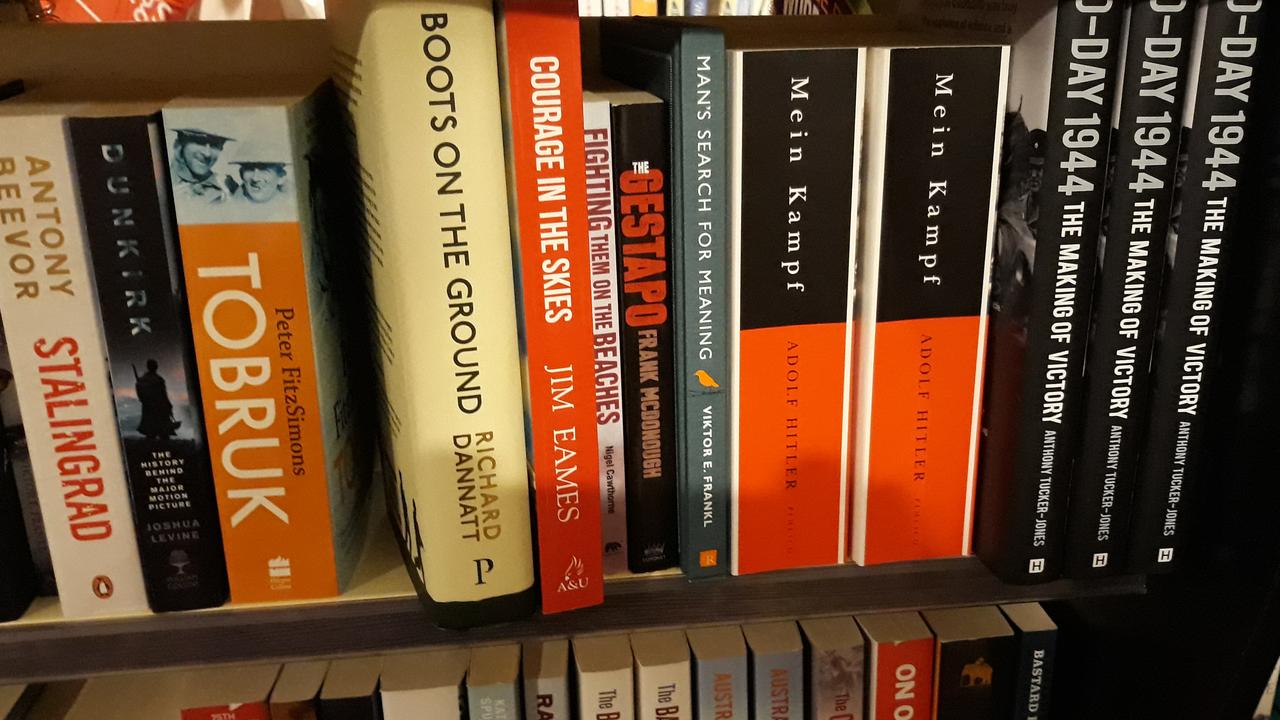
ADC chair Dvir Abramovich issued a scathing criticism, calling on the brands to find their “moral centre” and remove the “work of pure evil” from their stores.
“What don’t Australian bookstores get? This is not just another book with a ‘viewpoint’ but a warped, poisonous work of pure evil which was the inspiration for the worst mass murder the world has ever seen,” he said.
Dr Abramovich said the “industrialised extermination” of Jews and the atrocities at concentration camps were a “direct culmination of the anti-Jewish themes and road map for the Final Solution set forth in this twisted manifesto”.
“Mein Kampf still retains a powerful appeal for anti-Semites and white supremacists who worship Hitler and who celebrate the horrific crimes that his regime committed,” he said.
The criticism and call to remove the book comes amid a surge of neo-Nazi activity in recent weeks across Australia and, particularly, Victoria – which was the first Australian state to ban Nazi hate symbols and make displaying them a criminal offence in 2022.
But that did not stop a group of neo-Nazis from crashing a Posie Parker anti-trans rally in Melbourne and performing the Nazi salute on the steps of Victoria’s parliament in March.
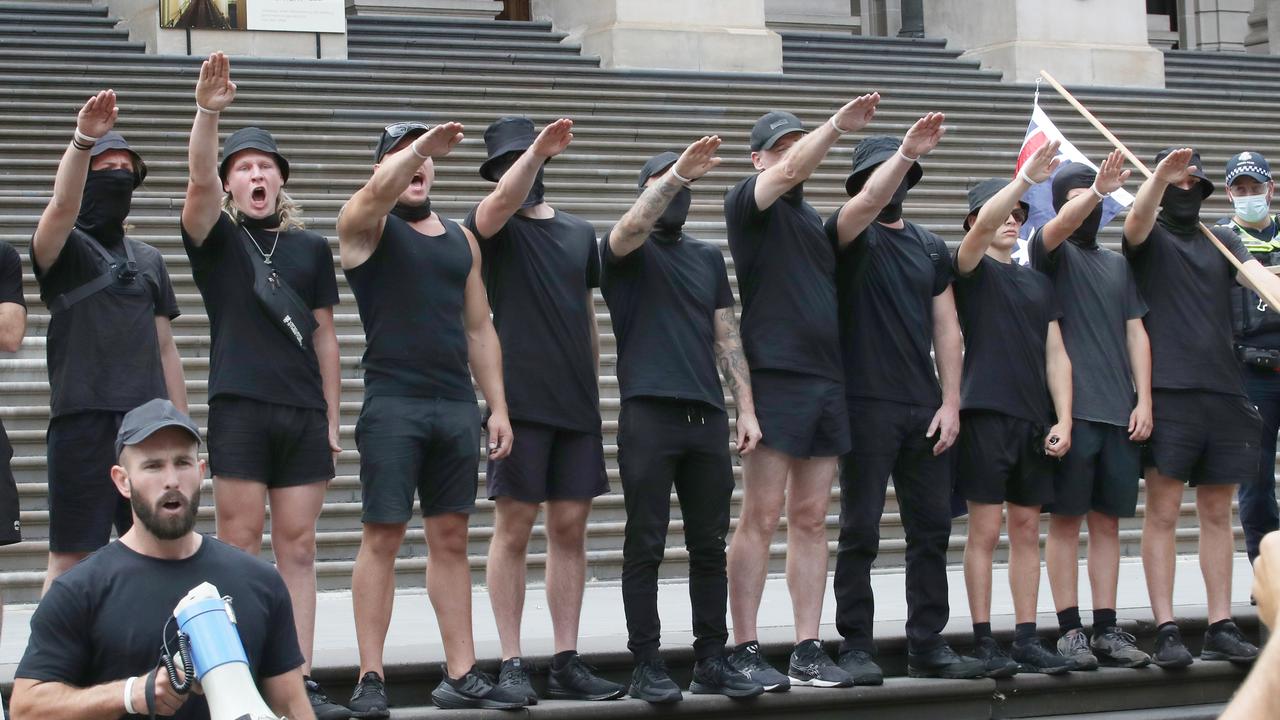
In response to the heinous display by members of the National Socialist Network (NSN) – which boasts being active in six state capitals and several regional cities across Australia – Victorian Attorney-General Jaclyn Symes announced the state would expand its symbol ban legislation to also outlaw the Nazi salute.
At the time, in late March, Opposition Leader Peter Dutton also attempted to rush through an amendment to the criminal code to make it an offence to display Nazi symbols – including the salute, uniforms, and others identified by the Executive Council of Australian Jewry (ECAJ) – “without a reasonable excuse”.
Labor knocked back the proposal, saying it did not have enough time to adequately consider the bill. The matter has not been revisited since.
Then, in April, the NSN made headlines again when members gathered for an alleged celebration of Hitler’s 134th birthday at a Melbourne restaurant.
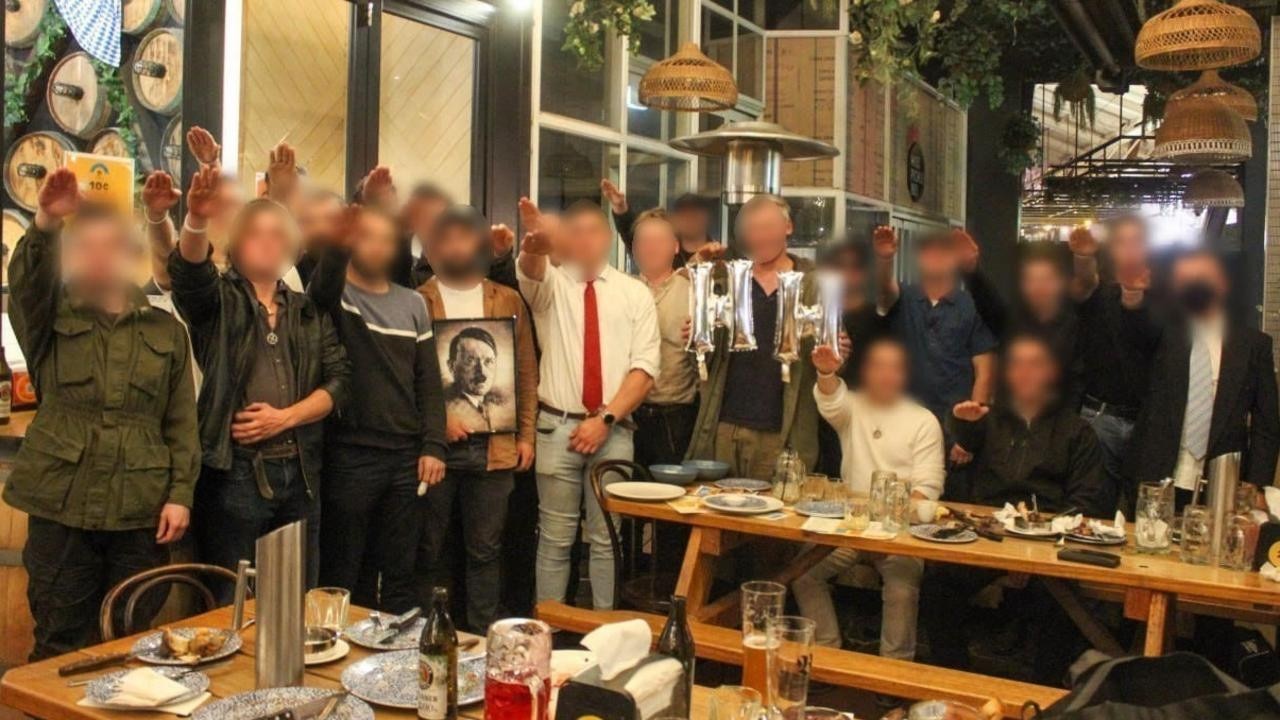
In pictures from the event at The Bavarian restaurant in Melbourne’s east, a group of about 20 men – including NSN leader Thomas Sewell – can be seen performing the Nazi salute. Another member holds two silver ‘H’ balloons, allegedly a reference to ‘heil Hitler’.
Dr Abramovich spoke out against the“stomach-churning” display at the time, and echoed his condemnation of Nazi symbols and sympathisers in slamming retailers for offering copies of Mein Kampf.
“If these bookstores’ goal is to increase their following and popularity among the Hitler worshippers, then they are on the right track,” he said, adding that the book was written by a “monster” who incited “murder, plain and simple”.
“And selling it is a slap in the face to the memory of the victims, survivors and brave Diggers who died to defeat the Third Reich.
“We urge all these companies to find their moral centre and not to provide another mainstream avenue for Hitler’s message to reach a new generation of readers.
“Our appeal to them is crystal clear: Withdraw this dark text immediately. They owe it not just to the victims and to the survivors, but to all of us.”
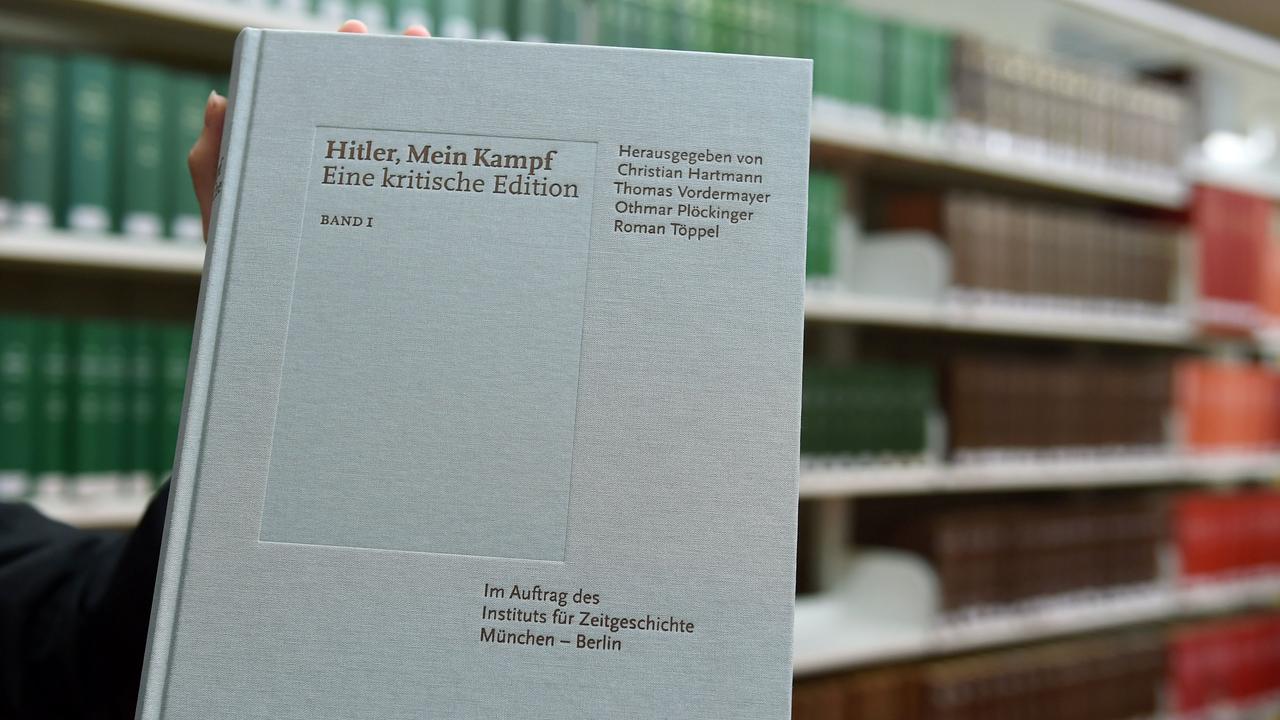
News.com.au approached the bookstores ADC found to stock Mein Kampf for comment. QBD, The Avenue, Booktopia, Fishpond, Boomerang Books, and Abbey’s did not respond by deadline.
An Amazon Australia spokesperson said Mein Kampf “is not for sale on Amazon.com.au”. And despite still being searchable on the site, a 1998 paperback print of the book is “currently unavailable” in Australia.
Independent retailer Readings still does sell the controversial text. And it something, the brand’s managing director Mark Rubbo said the store does “wrestle with”.
“It is an important historical document, and we believe that people should have access to it for research purposes and to understand the evil of Hitler’s philosophies,” he told news.com.au.
Mr Rubbo also said he has had “several discussions” about the text with Dr Abramovich and recalled from their last discussion “that we both agreed, reluctantly, that it should be available”.
“[Dr Abramovich] suggested that we insert a disclaimer in each copy which isn’t really practical. It appears that [he] may have changed his position since then,” Mr Rubbo said.
“There is an edition published by a division of Penguin Random House that has a very good critical introduction and assessment of Hitler’s incoherent ideas and his ruthless understanding of political power,” he added, noting that Readings has decided “to have only that option available for sale”.
“We don’t sell many copies, perhaps one a month through all our shops,” he said.
The Penguin Random House edition is what was photographed by the 60-year-old shopper in Chadstone and sparked ADC’s outrage.
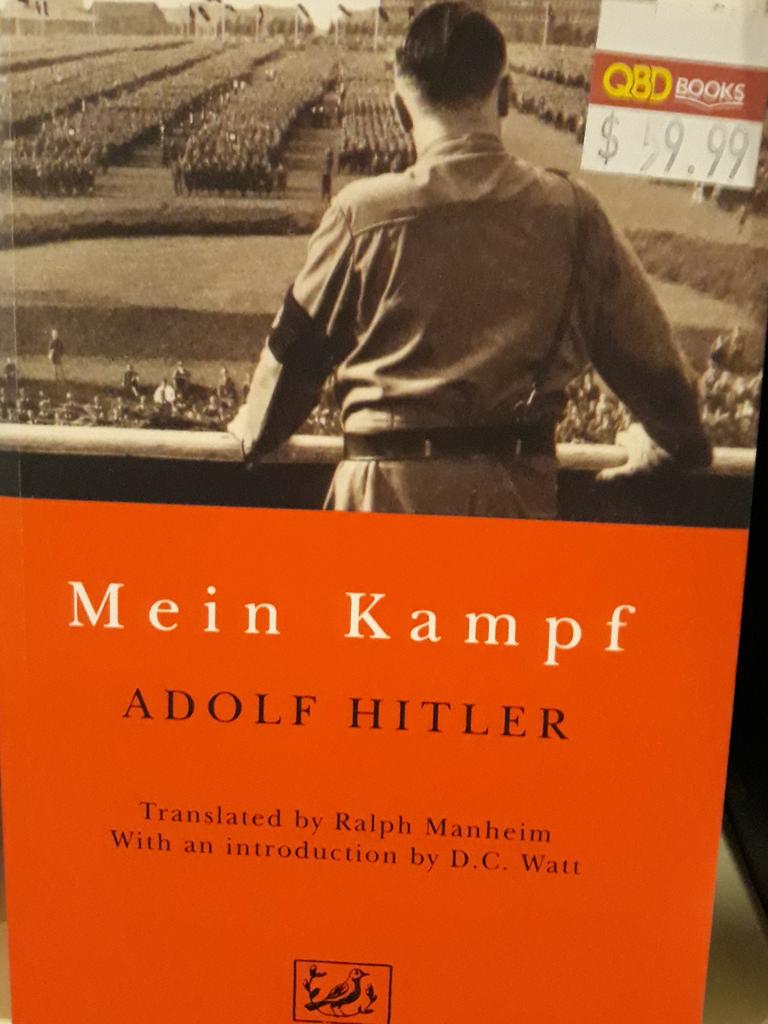
That 1992 edition includes an introduction by International History professor D.C. Watt which analyses Hitler’s background, the origin and history of the book, and offers the critical assessment Mr Rubbo spoke about.
“Mein Kampf is an evil book, but it remains necessary reading for those who seek to understand the Holocaust, for students of totalitarian psychology and for all who care to safeguard democracy,” the book description reads on the QBD site.
Most editions that are stocked at retailers are described as “scholarly investigation(s)” of Mein Kampf and Hitler’s brutal anti-Semitic campaign, or include a preface to give context and analysis of him and his text.
An Angus & Robertson spokesperson also responded to news.com.au’s request for comment, saying the brand “appreciates the sensitivity around this particular title and has carefully considered the decision to make it available”.
“Historically this book was being republished as a self-publishing enterprise by individuals or organisations who sought to profit from or promote the ideas discussed in the book. We made the decision to remove all of these editions a number of years ago and continue to monitor our marketplace for any new editions which do not meet our standards,” they said.
Angus & Robertson also only stocks the Penguin Random House edition.
“We believe our policy provides a robust balance between ensuring free, responsible speech and not banning books of historical importance.”
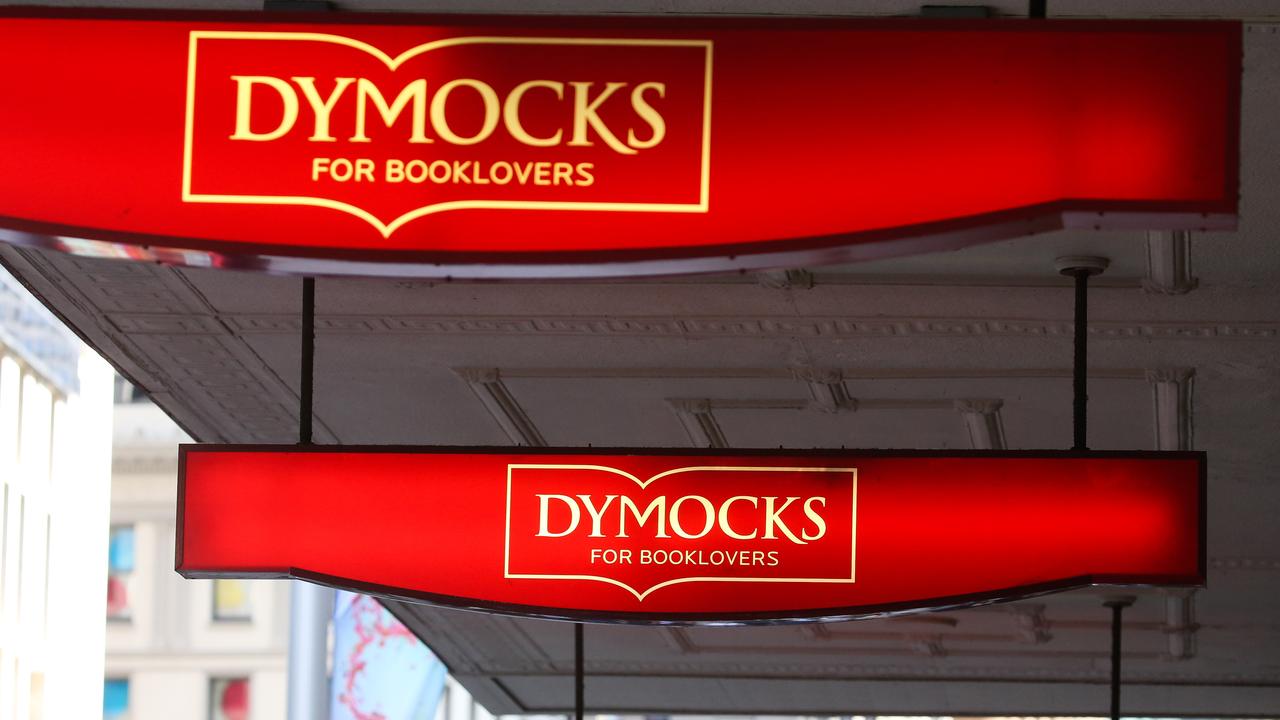
In 2020, the Executive Council of Australian Jewry (ECAJ) urged Dymocks to remove a large number of the 60 editions of Mein Kampf from its shelves, saying only six included commentary and annotations from recognised scholars.
Another 17 editions included commentary from other than recognised scholars, or were “accompanied by marketing material … which raise significant concerns”, according to Australian Jewish News at the time. The remaining 37 had no commentary.
Dymocks acted by removing 55 of the 60 editions ECAJ asked them to cease selling and all references to the editions were removed from the store’s website.
More Coverage
A spokesperson for Dymocks replied to news.com.au’s request for comment on this latest call for a ban, saying Mein Kampf is “a part of our history that cannot be erased” and that Dymocks offers an “educational edition” of the book with a critical assessment of “Hitler’s incoherent ideas and his ruthless understanding of political power”.
Academics have long debated whether or not banning such infamous, incendiary books like Mein Kampf helps curb extremism or adds to the mystery and allure of its text.
Some say the very history of the book and Hitler’s rise to power show there is no guarantee banning speech will stop the spread of dangerous ideas. And many say the book being accessible serves as a means of avoiding history repeating.





